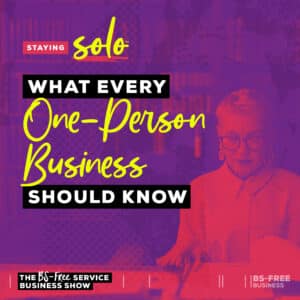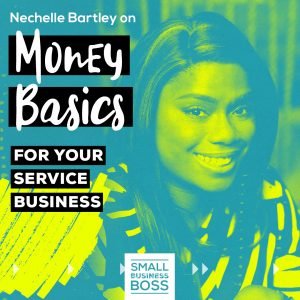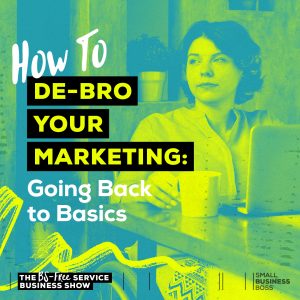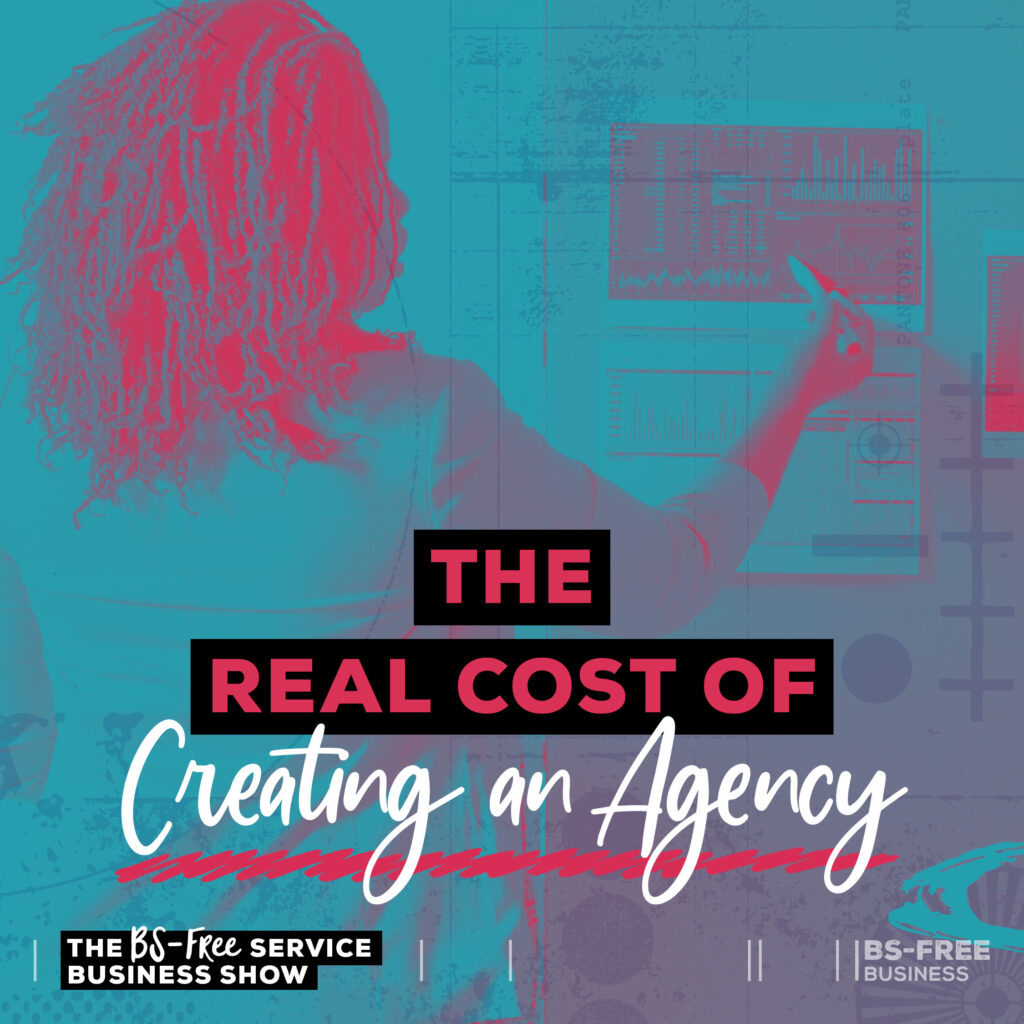
Search the site:
The Real Cost of Creating an Agency
Ever wondered what creating an agency would really take? Or if it’s the right choice for you? In this episode, I’m taking you behind the scenes and spilling the tea on the real costs of agency ownership, including the financial realities, the rollercoaster of leadership, and more.
In conversations with my clients and my broader community, a few common questions come up. One of the most frequent questions is how people can continue to grow their service business by shifting to the agency model.
In this installment of the “Real Cost of” series, I will talk about what it takes to shift from being a solopreneur to having a micro agency. As an agency owner who’s eight years into this journey,
I’ve got some hard-won wisdom to share, most of which is that it’s not nearly as simple as hiring a couple of people and landing a few more clients.
The appeal of creating an agency is that you can serve more clients, build a team of other skilled professionals, and ideally boost your revenue. All of this is great on the surface, but the real cost is much more complex.
As I’ve shared before, as much as I love the agency business model, it’s not right for everyone. I aim to help you make an intentional, thoughtful choice if this is the right path.
The Agency Math
Early in my career, I worked in an agency for five years. Then, as a freelancer, I partnered with multiple agencies over the years. So, when I moved from being a solopreneur to having an agency, I thought I had it all figured out.
Spoiler alert: I did not.
My biggest wake-up call was the reality that the financials suddenly changed dramatically. While I had more clients, I also had way more costs for our employees and contractors. Also, there were increased overhead costs as every tool needed multiple seats; we had payroll taxes, paid time off for employees, and so much more.
In my head, the math of creating an agency was really simple. Add more clients, add more team members, and make more money.
What I, and so many other people, fail to account for is the amount of capital it takes to continue to grow your business. You may have heard of the concept of the Valley of Death that happens with startups, where they need to invest heavily to get across the valley.
That’s the phenomenon I experienced in the early days of starting my agency, Scoop Studios. And it was seriously stressful at times as the math I had in my head wasn’t working.
I figured it out, but any potential agency owner needs to understand that it won’t be smooth sailing as you build a team and evolve your business model. Honestly, I don’t think anyone should do it purely motivated by the money, as it’s probably not worth the stress in the short term.
Shifting Roles: From Solo Show to Team Leader
Many of the service providers I work with love what they do, but your role will shift when you move into an agency model.
As you go from being a solo show to working with a team, you’re no longer responsible for all aspects of the business. That’s not to say you won’t ever do client work, but rather, certain areas of the business will need more of your time and attention.
The number one shift you’ll need to make is to become a leader.
You’ll have to build the team, manage, mentor, and motivate everyone. This can be a big job, especially in the early days of your agency, as you’ll have sole responsibility for hiring, onboarding, delegation, feedback, and more.
Trust me when I say those things take way more time and energy than you could ever expect, even if you already are a strong leader.
A great example is how there will be ongoing communication needs, including meetings, chats, reviewing work, providing feedback, preparing assignments, answering questions, and more. The agency owners I work with usually want to know if this is normal when we start working together. And yes, it’s 100% normal and integral to your team’s effectiveness.
Ultimately, you need to consider whether you want to spend your time on leadership and whether you’re excited about working with a team. Romanticizing all the positive aspects of working with a team is easy, but you’ll face challenges.
Clients: Going from Me to We
A key aspect of how your role shifts within the agency is related to your clients. First and foremost, with an agency, you typically need more clients than when you’re a solopreneur, which means you need to generate those client leads.
As an agency owner, your role will likely need to focus more on marketing and new business development. For me, that became a major part of my role, and it continues to be eight years later.
There’s also the shift from “me” to “we,” which requires getting your clients on board with other team members. While this is doable, it can be tricky as you need your client to trust your team like they trust you. In doing that, there’s absolutely a cost involved, as you need to lay the groundwork for everyone involved and support it with clear agency standards.
For clients who are used to working exclusively with you, this can be a painful (and annoying) process as you wean them off depending only on you.
A final cost related to clients that can be surprising is how client expectations can rise with the agency model. As a solo business owner, your clients likely perceive you differently than they will when you have an agency. This makes managing client expectations and demands critical as you grow. Otherwise, you’ll fall into a pattern of overservicing them to keep them happy.
Unpacking the Personal Costs
Do you remember how it felt when you started your business?
You were probably excited but also had a neverending to-do list and were working a lot. Creating an agency doesn’t require you to start from square one, but you’ll have a new set of demands on your time and energy.
Any new phase of your business will require an upfront investment of your time. I encourage you to consider if this is the right move for you in this season and how this has the potential to impact your personal life.
Also, any shift to the agency model will require you to develop new skills and the energetic and emotional capacity to do so. Just like dealing with clients in those early days of your business, the interpersonal aspects of building your agency’s team can be equally as challenging.
Please keep in mind that there are many positives to working as part of a team, and it can be incredibly rewarding. Fostering people’s professional growth, including their skills and confidence, has been one of my biggest career highlights.
On the flip side, there’s the potential for immense stress related to being responsible for other people’s livelihoods and managing the financial risks of your agency. While you have a team around you, shouldering these burdens can be isolating, so it’s critical that you have ongoing support.
Beyond Dollars: The Hidden Costs of Agency Ownership
In this episode, we’ve explored the complexities of transitioning from a solopreneur to an agency owner, recognizing the allure of growth but also the financial and personal costs involved.
Agency ownership entails more than just financial rewards; it demands developing new skills and navigating stress and isolation while building a thriving team.
My goal is to empower you to make informed decisions and foster strong support networks as you consider the agency model.

I’m Maggie Patterson (she/her), and services businesses are my business.
I have 20+ years of experience with client services, am a consultant for agency owners, creatives, and consultants, and vocal advocate for humane business practices rooted in empathy, respect, and trust.
Help Not Hype
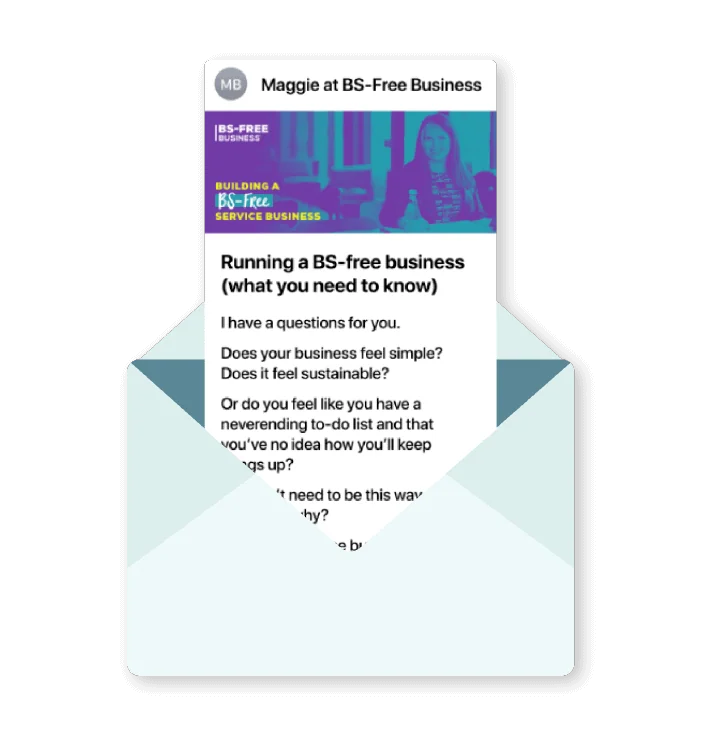
Tired of the same old BS business advice?
I got you with weekly emails packed full of proven strategy that makes a real difference in your service business.

